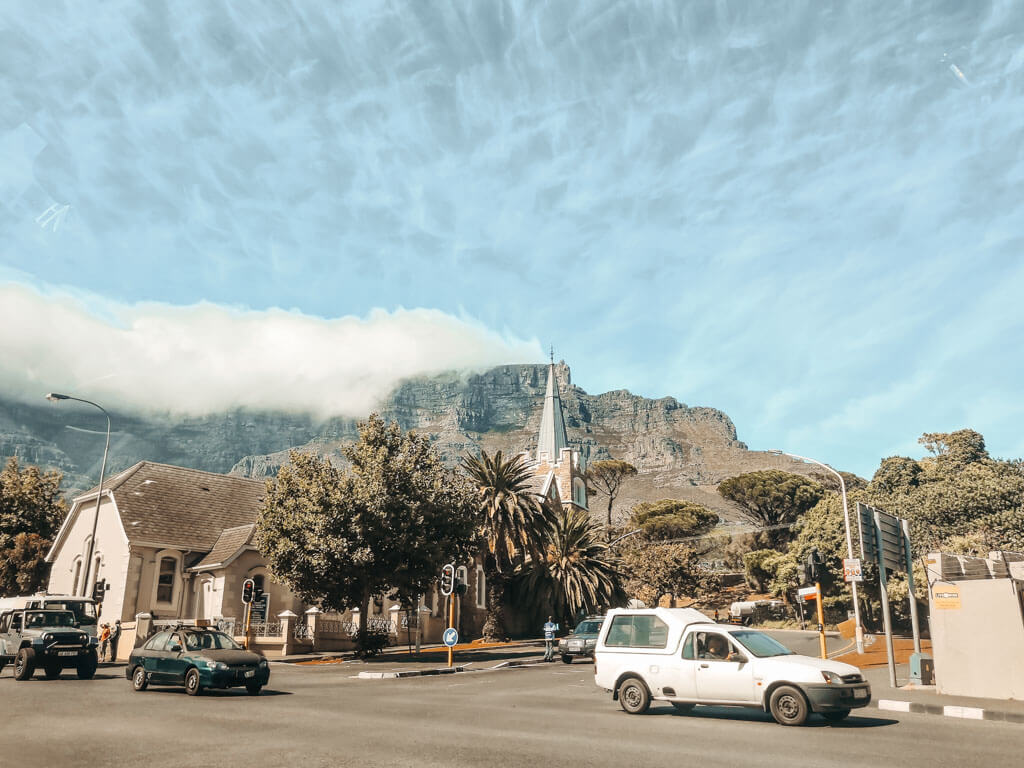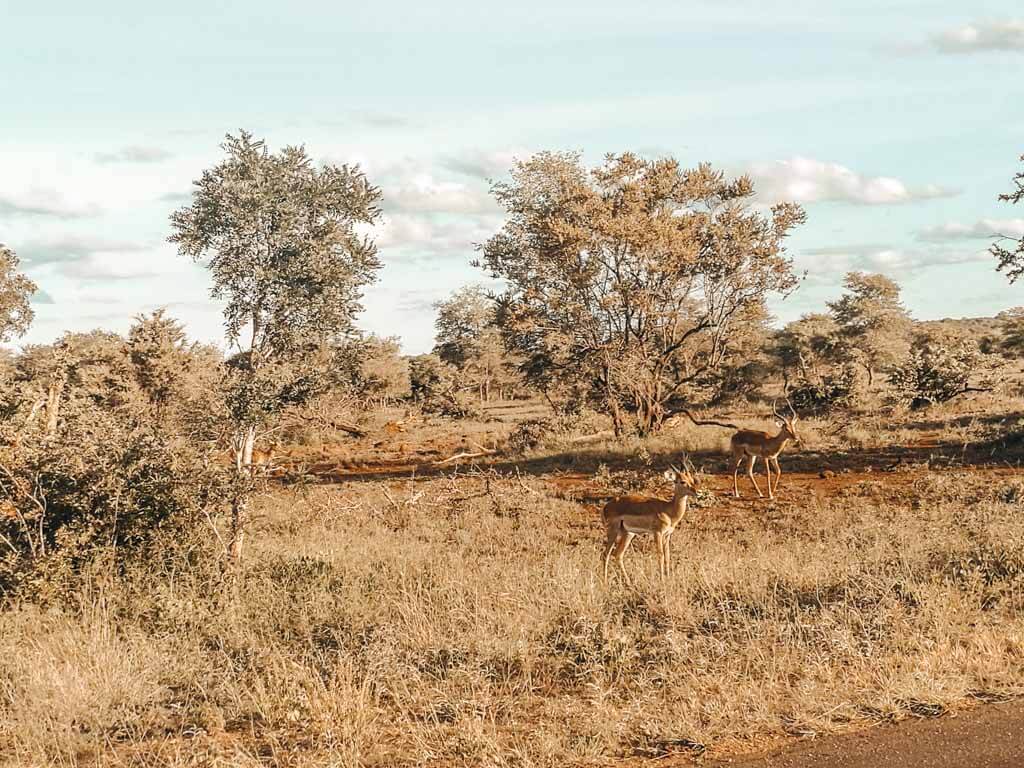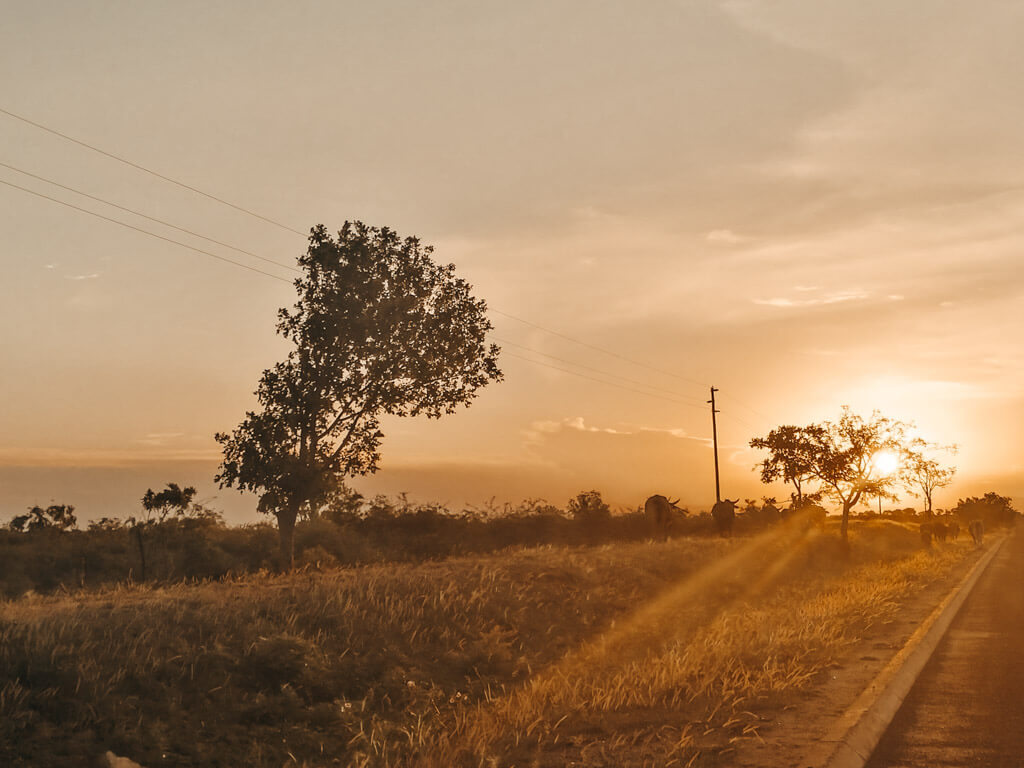Apartheid, safaris, racism, poverty and corruption are just a few examples that come to people’s minds when thinking of South Africa. But is that really all there is?
I have asked Kathi to tell us more about her expat life in Cape Town including challenges, language, and cultural barriers, local dishes, costs of living, and much more.
Hi Kathi, tell us about yourself…
Hi. I’m Kathi, a German expat currently living and working in Sarajevo, Bosnia, and Herzegovina. At the end of the year, my husband and I will be moving back to Cape Town where we have been living in 2016 and 2017. I write about my expat adventures on my blog and Instagram account.

What was the main reason for moving to Cape Town?
Moving to Cape Town was never a plan, as weird as this may sound. I went to South Africa for the first time in 2015 after finishing university and stayed for three months, teaching Microsoft Office courses and CV training at a community center in one of the townships.
Even though I did enjoy my time I was ready to go back home. It was only when I was back in Germany that I realized South Africa had taken my heart and that I wanted to go back badly and live there for at least a little.
At the end of 2015 I went back to Cape Town all by myself for a three-week vacation to see if I really wanted to take the leap. I was! After that, I applied for different jobs and moved back to South Africa in August 2016.
Check out my posts about how to emigrate to Cape Town.
Is it easy to connect with locals or are there any barriers?
Although the locals in Cape Town are super friendly it’s not so easy to get to know them and become friends. That has more to do with the fact that people my age normally have their group of friends already and don’t necessarily want to connect with new people.
I made this experience all over the world. It is super easy though to make friends with other expats and people from other South African cities.
In general, it is not hard to meet people in South Africa – the people there are very open, curious, and easy to chat to.

How about the cost of living in Cape Town?
Cape Town is not as cheap as you might think. If you want to live in a central safe area, you pay European rental prices. Outside of the city center, it is cheaper to live of course but you need to spend more money on transportation.
Local products, such as wine, meat, and seasonal veg are quite cheap while imported products like cheese are expensive – a fact that makes me particularly sad as I just LOVE cheese.
Check out my post about the costs of living in Cape Town.
What is your favorite and least favorite part about living in South Africa?
My favorite things are the weather that is almost always good, the friendly people and the fresh and spicy food. For me, everyday life is just so much better when the sun is shining, and when people are simply just nice to one another. Of course, you also meet rude people in South Africa but most South Africans are very friendly and funny.
South Africa IS very far away from Germany though. Right now, I could hop on a plane and be home in just three hours if I would have to. From Cape Town, I need to plan at least a 12-hour-flight.
Luckily it is in the same time zone as Germany so at least it’s easy to stay in touch with friends and family back home via WhatsApp.
Another thing I don’t like and will probably never get used to is the racism and segregation that is still strong in South Africa. Of course, Apartheid was abolished only 25 years ago, and those structural and societal changes take time.
Right now, they are still very visible in society and some people tend to still have a very racist mindset that does not align at all with the idea of a “rainbow nation”.
What was the biggest culture shock for you?
The segregation I was just talking about! Although there is no apartheid anymore in South Africa, you can still see it. In the waiters being black and the supervisor being white.
The cashiers, office clerks, gas station attendants – all those jobs that can be done with minor education are done by black people while the management positions are taken by white people.
Oh, and also: Talking in the terms “black”, “white” and “colored” came as quite a shock to me.
This is of course a societal thing but on the personal level it was very difficult for me in the beginning to accept that nobody ever commits to anything.
This is more a Cape Town than a South African thing, but in Cape Town people love to make plans and then only decide last minute if they want to follow through with them. So, you might just end up all by yourself for a long-planned barbecue or hike because everybody else decided last minute to have other plans.

What is your favorite local food?
As a big Indian and Malay community lives in Cape Town, they have amazing curries. In general, the food in Cape Town is fresh and spicy and I love it. Also, the city has some amazing cafés, in fact, it’s difficult to find bad coffee in Cape Town.
Can you share any funny/typical tradition from South Africa?
South Africa is such a diverse country but there is one tradition that unites all ethnicities and races: Barbecuing.
South Africans love their “braai” as it’s called there. They even have a whole month dedicated to braaiing, September, the month in which they also celebrate Heritage Day, a day that is normally also celebrated by a barbecue with friends and family.
What is a stereotype about South Africans that you found out to be true?
They are always late. And it’s true. Being late for five minutes is not even considered late. Being late for 15 minutes is acceptable. Everything else might be frowned upon in a professional environment but for private events, it’s completely normal to arrive an hour or more later than the agreed-upon time.
What is your favorite thing to do in Cape Town that people should do if they visit?
A perfect day in Cape Town starts with a coffee at Deluxe Coffeeworks, followed by a hike up Lion’s Head. After that, we have a quick dinner on Kloof Street and then head to the beach for a little chill-time.
For the sunset, we grab some ciders, hop on a car, and head to Chapman’s Peak. On a viewpoint up on the Peak, we enjoy the sunset and then head back down to Hout Bay, a suburb of Cape Town where we will have dinner and a couple of drinks at the Bay Harbor Market.

What was the biggest challenge for you once you moved to Cape Town?
Safety. It was hard for me to not be able to go on long walks. I am used to walking everywhere or at least having good public transportation that gets you anywhere.
In Cape Town, that is not possible. I had to get used to taking Ubers everywhere, especially in the evenings. And when you go for a walk, you always have to be careful of your surroundings.
On a good note – I am much more streetwise now than before I moved to Cape Town.
What is a fun fact about South Africa most people don’t know about or expect?
South Africa is such an interesting country! It is not exactly a fun fact, but can you imagine less than 30 years from now, a black person could not sit at the same table as a white person? Could not go to university. Could not even live where they wanted.
This should really serve as a reminder that we have to be actively anti-racist whenever we can. That it’s not enough to be tolerant, that we have to communicate it.
What would be your top advice for people who are thinking to move to South Africa?
Do it. Because wherever you are from, this country will change you – in a good way. South Africa is the perfect country to be an expat in. There are so many different people, cultures, traditions and you can just make it home easily.
You don’t necessarily feel like a foreigner, people are used to diversity and they are very open in accepting others (most of the time, of course). There is also xenophobic outbreaks in South Africa and again it is to say that I as a white European have quite a different experience from a black, young guy from Zimbabwe).

What is the biggest difference between your home country Germany and South Africa?
I love how South Africans have such a positive attitude towards life. They don’t stress as much about the small things they can’t change as Germans do.
Germans have a culture of complaining about the small things a lot whereas South Africans will very often tell you how blessed they are even though their lives might give them much more reason to complain. What’s the point in complaining when you can’t change it anyway?
Living there, I got much more relaxed, I could let go a bit more of the perfectionism that stands in my way so often. Perfectionism is not that important for South Africans – it is much more important to finish your tasks well enough and then go out and enjoy life!
What do you miss most from home?
Friends, family, and German bread.
You can connect with Kathi on Instagram if you want to know more about emigrating and living in Cape Town.
You can find more expat stories on my blog.



